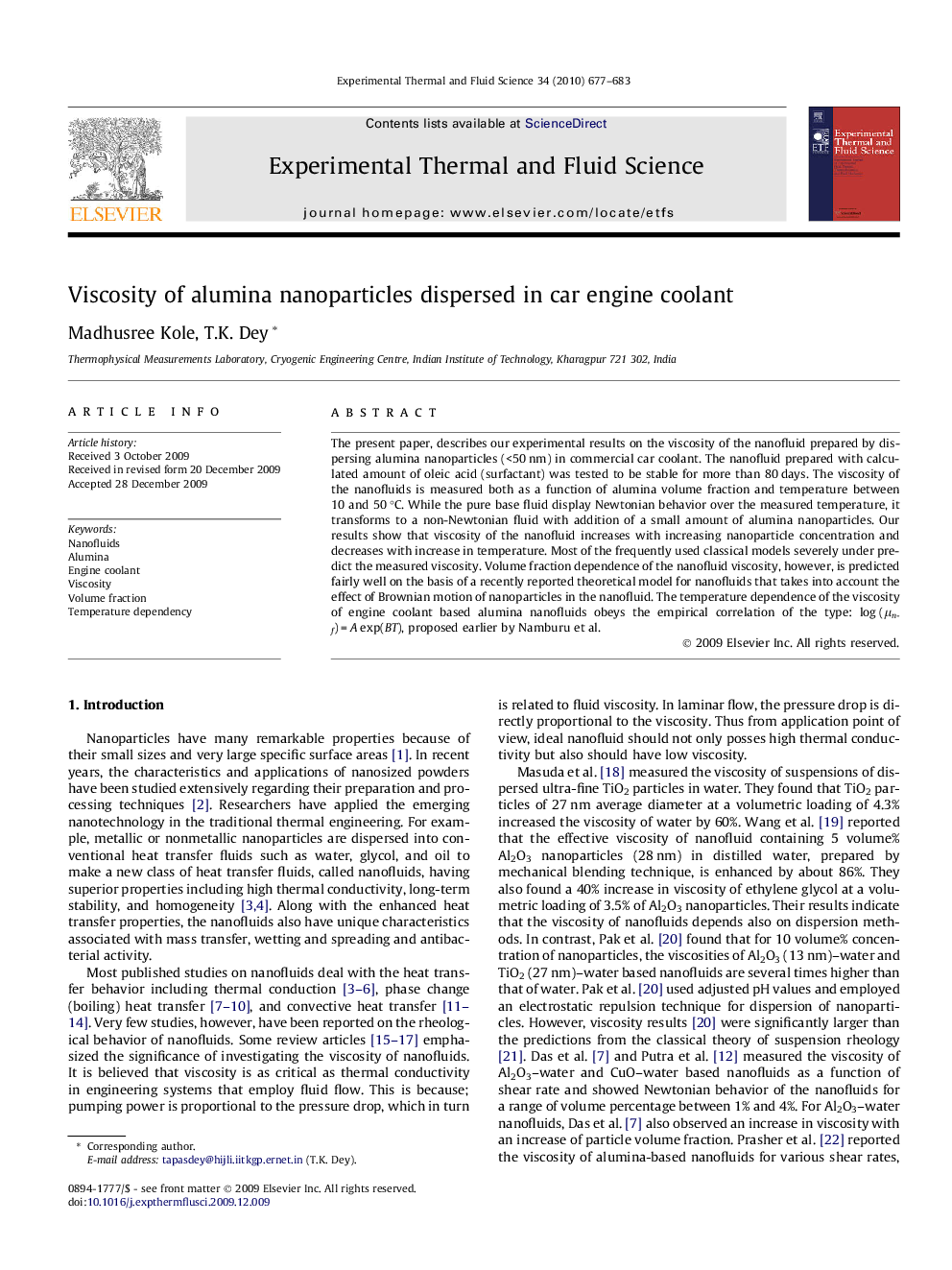| Article ID | Journal | Published Year | Pages | File Type |
|---|---|---|---|---|
| 652079 | Experimental Thermal and Fluid Science | 2010 | 7 Pages |
The present paper, describes our experimental results on the viscosity of the nanofluid prepared by dispersing alumina nanoparticles (<50 nm) in commercial car coolant. The nanofluid prepared with calculated amount of oleic acid (surfactant) was tested to be stable for more than 80 days. The viscosity of the nanofluids is measured both as a function of alumina volume fraction and temperature between 10 and 50 °C. While the pure base fluid display Newtonian behavior over the measured temperature, it transforms to a non-Newtonian fluid with addition of a small amount of alumina nanoparticles. Our results show that viscosity of the nanofluid increases with increasing nanoparticle concentration and decreases with increase in temperature. Most of the frequently used classical models severely under predict the measured viscosity. Volume fraction dependence of the nanofluid viscosity, however, is predicted fairly well on the basis of a recently reported theoretical model for nanofluids that takes into account the effect of Brownian motion of nanoparticles in the nanofluid. The temperature dependence of the viscosity of engine coolant based alumina nanofluids obeys the empirical correlation of the type: log (μnf) = A exp(BT), proposed earlier by Namburu et al.
